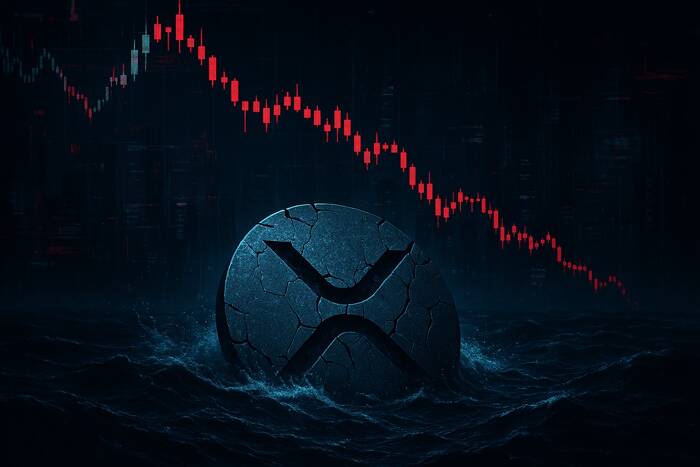Tucked away on a side stage at a crypto conference in downtown Toronto, a young man in a dark suit—no tie, and apparently no socks—took to the microphone to explain why what was once Canada’s most prominent bitcoin miner had decided to team up with the Trumps.
Earlier that afternoon, Eric Trump and Asher Genoot, CEO of Hut 8, had delivered a main-stage talk featuring plenty of superlatives to a standing-room-only crowd. American Bitcoin, a company born of a merger between the Canadian-founded company and Trump’s firm American Data Centers, would become the world’s biggest, best and fastest-moving bitcoin miner, they said, at times drawing cheers.
Talking Points
- American Bitcoin, a firm born of a merger between Canadian-founded Hut 8’s bitcoin mining business and Eric Trump and Donald Trump Jr.’s weeks-old data centre venture, is hoping the Trump connection and a trendy strategy for financializing its bitcoin treasury will drive the firm’s stratospheric growth
- Both the Trump connection and the bitcoin financialization play, which takes a page from Michael Saylor’s Strategy, carry big risks, experts say
Speaking to a much sparser crowd at the side stage, a moderator asked Michael Ho, Hut 8’s bare-ankled chief strategy officer, a key question: What will associating with the Trump name do for American Bitcoin?
Ho said the answer is obvious—just look at the size and energy of the crowd Trump attracted earlier that day. “The turnout, the attention, the engagement,” he said. “We really believe he’s going to bring more supporters and attention to the space.”
To further fuel the buzz, Ho said American Bitcoin plans to jump on the sector’s hottest trend. It will use financialization tools to multiply the firm’s returns and accumulate as much bitcoin as possible, he said, a playbook that’s worked so well for Michael Saylor’s company, Strategy—formerly known as Microstrategy—that some have dubbed it an “infinite money glitch.”
In March, Hut 8 gave up a seven-year-old, well-established bitcoin mining business in exchange for an 80 per cent stake in American Data Centers, creating American Bitcoin through an all-stock deal. Association with the Trump name and the Strategy approach has proven to be rocket fuel for other public companies in recent months. But alongside the lure of huge rewards come huge risks: financial, reputational and systemic.
“This is going to catch up to someone,” said Adam O’Brien, chief executive of the Edmonton-based bitcoin trading platform Bitcoin Well, referring to the trend of bitcoin treasury companies taking on massive amounts of debt to buy bitcoin and fuel stock price gains. “I don’t know what it is, but there will be something that absolutely crushes these companies.”
A 2023 merger with a Miami-based competitor called US Bitcoin saved Hut 8 from being crushed by the prolonged downturn that followed the collapse of crypto giant FTX. Hut 8 was an early champion of the strategy of holding bitcoin on its balance sheet, with its treasury making it an attractive merger target.
Hut 8 has since moved its headquarters to Miami. The combined company kept the Canadian firm’s name but replaced its CEO with Genoot, a US Bitcoin co-founder, weeks after short-seller J Capital Research alleged that Hut 8 had overpaid for the deal and highlighted a spate of other regulatory run-ins.
Hut 8 continues to have a significant presence north of the border. Today, the firm has mining sites in Medicine Hat and Drumheller, Alta., as well as New York and Texas.
Two years later, the fortunes of the crypto industry turned for the better, thanks in no small part to the Trump family. Nearly half of all corporate contributions to President Donald Trump’s campaign came from the crypto industry, with bitcoin topping US$100,000 for the first time just prior to his inauguration, amid promises of friendlier regulations.
The Trump family became prolific crypto investors themselves, drawing criticism for potential conflicts of interest. According to a report from the group State Democracy Defenders Action, the president’s crypto holdings represent US$2.9 billion, nearly 40 per cent of his net worth. Eric Trump, executive vice president of the family business, the Trump Organization, also sits on the board of World Liberty Financial, a Trump family crypto venture.
At the Toronto conference, Ho said Eric Trump is a private businessman and “not related to anything on the political side.” Hut 8 spokesperson Gautier Lemyze-Young acknowledged The Logic’s request for comment, but did not respond by deadline. Eric Trump, via a request sent through the Trump Organization, did not respond when asked how perceived conflicts of interest between the Trump family’s political and crypto interests might affect American Bitcoin’s reputation.
The Trump brothers also took on a variety of advisory roles at small public companies, which saw their shares pop following news of their involvement. One such company is Dominari, a small New York City investment bank that announced in February it was launching a data centre firm in partnership with the Trump brothers.
Eric Trump speaks at Consensus 2025 by Coindesk, in Toronto, Thursday, May 15, 2025. Photo: Cole Burston for The Logic
Just over a month later, Hut 8 announced the American Bitcoin deal with American Data Centers. Hut 8 agreed to trade the majority of its bitcoin mining equipment and operations for an 80 per cent stake in the combined company, keeping its AI computing business. Six weeks after that, American Bitcoin announced it was merging with a third firm—Gryphon Digital Mining, a Nasdaq-listed penny stock that has agreed to take the company public through a reverse takeover in exchange for a two per cent stake.
Lemyze-Young did not respond when asked what Dominari and Gryphon bring to the table that was worth giving up a 20 per cent stake in Hut 8’s bitcoin mining business. The companies did not respond to requests for comment.
Speaking on stage at the conference, Genoot and Eric Trump offered few details about how the deal came together. But Genoot said the two bonded over shared philosophies and interests, including an interest in data centres. “He was like, ‘I understand that world. I understand HVAC. I understand electrical,’” Genoot said of Trump.
Neither Lemyze-Young nor Eric Trump responded when asked about what experience Trump has with data centres other than through American Data Centers, a month-old company at the time of the merger announcement.
Jay Ritter, an emeritus professor at the University of Florida who studies initial public offerings, said American Bitcoin’s proposed path to a public listing is an unusual one. Companies usually only go public through reverse takeovers with tiny firms if they have no other option—which isn’t the case here, since Hut 8 and Dominari are both publicly listed and could have spun out American Bitcoin as a new public company, he said.
“The vast majority of companies that go public with a reverse merger have been disappointments. Quality companies rarely do this,” he said. Lemyze-Young, Dominari and Gryphon did not respond when asked why American Bitcoin chose this path.
While the benefit to American Bitcoin is unclear, the upside for Gryphon is evident in its share price. After losing 66 per cent of its value over the past year, it more than quadrupled the day the deal was announced.
Mere association with the Trump name has the power to turbocharge a stock, but American Bitcoin plans to add another source of fuel to the fire through its financialized bitcoin treasury strategy.
Saylor’s Strategy gained renown for its pivot from selling software to hoarding as much bitcoin as it could, as quickly as possible, partly funded by bonds that can convert into stock. Behind the concept is a thesis shared by many in the bitcoin world: that the digital asset will one day replace the U.S. dollar as the global reserve currency, making it much more valuable in the long run than practically any other asset it could be traded for—especially dollars.
Strategy, whose stock has skyrocketed 138 per cent over the past 12 months, has spawned a legion of copycats. These firms focus on using leverage and other financial tools to accumulate crypto, with many of them trading at a significant premium to the value of the digital assets on their balance sheets.
The phenomenon has been called the trend of the year—and the most significant systemic risk to the crypto market. Ritter said that in his view, there’s no rational reason why these firms should trade at a premium to the crypto assets they hold.
“I put them in the category of meme stocks, where the price is divorced from fundamental value,” he said. “I view this as just another example of some people taking advantage of the willingness of some investors to overpay for Bitcoin.”
O’Brien, the Bitcoin Well CEO, said he’s supportive of companies putting Bitcoin on their balance sheets. However, he said he’s concerned about the excessive levels of risk some firms are taking.
“The terms of the debt are going to be quite important,” he said. “If you’re taking on six months, 12 months’ worth of debt that’s higher at high interest and high risk, that’s a gamble. And that’s bad.”
Hut 8 and Eric Trump did not respond when asked what steps American Bitcoin will take to mitigate risk and what they think about concerns that bitcoin treasury companies could cause the next market crash.
Speaking on the same panel as Ho, Matt Prusak, CEO of American Bitcoin, said the firm wants to do more than just stockpile bitcoin. It also wants to support developers and projects designed to make it easier to use bitcoin for payments, to “ensure that we’re a leader, not just in bitcoin mining, but bitcoin overall,” he said.
O’Brien said more support for developers is always welcome—but further blending bitcoin’s brand with the Trump family’s may not be.
“Anytime you have a megaphone that big, you’ve got to really watch what you say,” he said. “With great power comes great responsibility, and I don’t think Trump’s ever been accused of being too responsible.”









